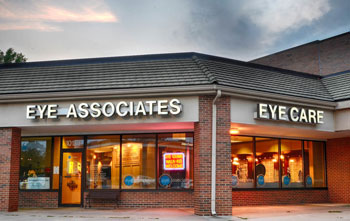 Mark Siefkes, OD
Mark Siefkes, OD
The practice’s doctors, including Eye Associates partner Mark Siefkes, OD, believe the daily modality is the most healthy, comfortable and convenient option for patients. They also have found this modality to be the most advantageous for the practice.
As a member of Opti-Port, an alliance for multi-location eyecare practices, Eye Associates found out early about a new program from Alcon that could help them with this effort: DAILIES Choice. The program offers a $100 rebate for purchases of six-month supplies of daily disposable lenses, and a $200 rebate for purchases of annual supplies.
Get a Jump-Start Optimizing New Programs
“As a member of Opti-Port, we get information about new programs like this as soon as the information is available, and we’re easily put in touch with the people who can help us,” said Dr. Siefkes.
An Alcon representative, who works specifically with Opti-Port members, was assigned to the practice to discuss the new program, and how it could best be presented to patients. The practice’s Alcon rep even made a laminated visual showing the price comparison of an annual supply purchased with the $200 rebate versus the cost of buying shorter-term supplies with a smaller rebate or no rebate.
According to Dr. Siefkes, finding out about the program as soon as it was officially launched also gave his practice an advantage over competitors.
“Being a member of Opti-Port let us know in real time about this new program available for our patients,” he said. “The membership gave us access to an experienced Alcon rep who helped us put together a nice business plan to make the most of the program—and we’re now seeing it pay off, both for us and our patients.”
Due to this push toward dailies, 57 percent of the practice’s contact lens wearers are currently in daily disposable lenses, compared with just 35 percent two years ago.
 Win-Win for Patients & Practice
Win-Win for Patients & Practice
“Our most important goal is doing what’s best for our patients, but in this case, moving more patients into daily disposable contacts is a win-win for both patients and our business,” Dr. Siefkes said. “It’s better for us financially in the short term, as there’s more gross revenue with daily disposables and a greater profit margin—20 percent to 25 percent more—but there’s also a long-term financial gain in the patient compliance it encourages.”
When patients purchase less than an annual supply, they often extend the wear of their lenses past the recommended replacement schedule, Dr. Siefkes explained. When that wearing time is extended, it is unhealthy for patients’ eyes in that it increases the risk of infections and irritations, creating discomfort.
“We’ve found that patients who tend to stretch their lenses don’t come in at the 12-month mark for their annual comprehensive exam and prescription renewal. We may not see them back in until the 18-month mark, or even later,” Dr. Siefkes said.
“If you do an annual supply, you will see that person back in one year,” he said. “To keep a practice busy and to keep your appointment book full, moving a lot of people into daily disposables makes great financial sense for the long-term stability of the practice. You’ll make more profit, as patients come back more often, and it’s better for the patient.”
Successfully Address Cost Concerns
When you tell patients they could have a fresh lens every day that they don’t have to worry about cleaning at the end of the day, which they can just toss into the trash before going to bed, most are interested. Then there’s sometimes a pause as the patient realizes that this added convenience and comfort probably comes with a cost.
“We go over all the benefits of daily disposables in the exam room, and we’ve found that very few patients hear those benefits and say they aren’t interested. But the next question we always get is how much they cost,” said Dr. Siefkes.
In the practice, the staff calculates for patients the price of the annual supply of daily disposable lenses with the $200 rebate factored in versus the cost of an annual supply of monthly contact lenses.
“With Alcon’s DAILIES Choice program, we are now able to demonstrate to patients that the net cost of an annual supply of daily disposables and an annual supply of monthly contact lenses tends to be about the same, or in some cases the dailies are even less expensive,” Dr. Siefkes said.